Enterprises face talent shortages, tight budgets, technical debt, and the constant pressure to move faster. Deciding when to invest in custom software and when to use low-code or no-code platforms can be a game changer.
No-code platforms offer visual builders and pre-built templates that speed up development and reduce time to market. Users can create apps, launch websites, and automate workflows without writing code.
According to Gartner, over 70 percent of enterprise apps will be built using low-code/no-code technologies by 2025. It isn’t surprising that enterprises worldwide are betting big on no-code apps that allow even non-technical users to become developers and build complex apps.
4 reasons why no-code app builders are gaining popularity:
No-code app builders offer significant benefits, making them attractive to businesses and individual developers alike.
Faster Development
Traditional software development can take months or even years to complete. No-code platforms drastically shorten this timeline, allowing applications to be built in days. This speed helps businesses meet market demands and launch solutions faster.
Easy to Use with Visual Tools
Most no-code platforms feature visual editors that enable users to build apps without writing code. This user-friendly approach lets non-technical users take ownership of development, ensuring faster iteration and deployment.
Better Collaboration Between IT and Business Teams
No-code tools reduce friction between IT and citizen developers, promoting a collaborative environment. Business users can handle app creation while IT ensures governance and security, leading to smoother operations and faster results.
Choose the Right Platform for Maximum Impact
To fully leverage the advantages of no-code tools, select a platform that aligns with your needs and meets your critical requirements.
If you’re ready to explore your options, check out the top no-code app builders in 2024.
1. Kissflow
Kissflow is a no-code app that lets you build custom enterprise apps and transform complex business processes into streamlined workflows. It allows developers and non-technical users to quickly launch workflows using visual builders, drop-and-drop elements, and templates.
The no-code app builder can align IT with business seamlessly, accelerating digital transformation. Built for multiple use cases across different departments, Kissflow offers powerful yet simple features.
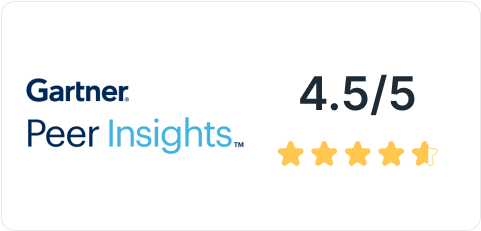
Kissflow fosters collaborative development in enterprises by bringing together business users and IT developers. Companies can build solutions faster, streamline internal processes, and save costs.
The platform's governance layer provides IT with complete control over the development process to mitigate risks without restricting innovation. When pro developers and citizen developers come together to build no-code apps, deploying apps in days instead of months becomes possible.

-
No-code workflows:
Build workflows through the drag-and-drop builder without any code.
-
Custom user interfaces:
Create custom user interfaces for your apps by dragging and dropping pre-built components.
-
Robust integration:
Integrate your custom no-code apps with external and internal systems.
-
Form builder:
Create powerful forms with over twenty-five field types, including remote lookup and geolocation.
-
Business rules engine:
Manage complex business rules, branching, and conditions using Kissflow’s powerful rules engine.
-
Governance:
A centralized governance structure dashboard allows you to govern apps with complete visibility.
-
No-code development:
Users can build apps with minimal coding and deploy them quickly.
-
Custom JavaScript:
Extend the capabilities of your applications by adding custom Javascript code.
-
Role-based access:
Manage access to apps and data by assigning users different roles and permissions depending on their team responsibilities.
-
Case management:
Optimize case management even for complex processes with the help of Kissflow Boards.
This adaptable program has significantly improved cloud-based productivity and quality. It has been crucial in counteracting acquired data. Its superior user interface is a critical factor in improving administrative performance. For me, it is an excellent value.
I look forward to reaping many benefits from this program soon.
Frank J
Business Development Executive

Experience the power of Kissflow firsthand
2. ServiceNow
ServiceNow is a low-code/no-code development platform that empowers pro and citizen developers to build apps using templates quickly. The ServiceNow App Engine allows users to create new workflow applications in just a few clicks. Connecting any external systems or third-party apps using the rich set of tools and APIs is also possible.

-
Low-code:
ServiceNow offers a drag-and-drop visual builder that allows users to build and design apps with minimal coding.
-
Process orchestration:
Users can connect complex processes, systems, and people through centralized workflows.
-
Custom user interfaces:
Build custom and consistent user interfaces without any boilerplate code.
-
App engine management center:
ServiceNow offers end-to-end app management and governance, allowing IT admins to track app development and deployments.
-
Continuous Integration and Continuous Delivery (CI/CD):
Build applications at scale without interruptions using continuous integration and delivery.
-
Monitor data:
Users can collect, manage, and report enterprise data. They can also generate custom reports.
-
Custom templates:
Users can leverage a vast library of pre-built components to build and deploy apps quickly.
-
Powered by AI:
With ServiceNow, users can add AI capabilities to make their apps more robust and adaptable.

“The best thing about ServiceNow App Engine is its easy use and integration with the platform. Users don't need to know excessive amounts of details because they are all present within the studio.”
Harrison L
Enterprise User
-
Lack of customization:
While some customization options are available, they are somewhat limited, and it can be challenging for users to build complex workflows.
-
No mobile support:
ServiceNow currently doesn’t offer any mobile support.
-
Long learning curve:
It can take some time for users to explore and use the platform's many features.
-
Performance issues:
The platform starts lagging as the complexity and volume of workflows increases.

“It's not a user-friendly tool for managing tickets. Someone new to this tool will need time to navigate the UI.”
Akshay B
RPA Specialist

3. Quickbase
Quickbase is a collaborative no-code app that allows IT pros and citizen developers to build custom apps and automate complex processes. IT admins can use the governance capabilities to oversee app development through a centralized platform.

-
Workflow management:
Users can digitize internal processes, automate repetitive manual tasks, and manage complex workflows.
-
No-code app builder:
Quickbase offers an intuitive and easy-to-use no-code application builder for orchestrating workflows.
-
Easy integration:
Integrating workflows with other internal or external systems is possible for efficient data flows and collaboration.
-
Governance:
Users can access advanced data governance features to improve data integrity and effectively manage risks.
-
Access control:
IT admins can set up access control measures according to the roles and responsibilities of different team members.
-
Performance monitoring:
Users can monitor key operational metrics in real-time and quickly identify critical issues before they become big problems.
-
Integration:
Quickbase offers robust integration features along with extensive APIs that make it possible to connect core workflows and centralize data management.
-
Audit logs:
Users can track data and user activity through real-time audit logs.

“Quickbase allows us to confidently put powerful tools in the hands of our operational owners. We have seen it transform how our teams work - from project management to comprehensive clinical data tracking.”
Sherry M
Sr. Applications Systems Analyst
-
Occasional errors:
It's common to find occasional errors when modifying or updating data on the platform.
-
Customizing apps is time-consuming:
Creating custom apps on Quickbase takes a lot of time and workarounds.
-
Lack of support for large datasets:
Quickbase isn’t great when handling large datasets. There are also limitations on the app sizes and table sizes.
-
Inability to use JavaScript:
Users cannot utilize Javascript to add custom capabilities to their apps.

"The price is absolutely asinine! They are making me switch to another competitor because the price is so exaggerated from what you receive. There needs to be a "toned down" version that doesn't require 10 users. Very disappointed in the direction this company has gone. I had hopes this would end eventually but these people are money hungry!"
Jeff H
Installation Specialist

4. Nintex
Nintex is a no-code app with intelligent process automation and process workflow capabilities. IT and citizen developers can build powerful, compliant, efficient workflows to scale their internal operations. The platform offers custom workflows, RPA bots, and pre-built process maps to optimize business processes. Users can automate complex workflows, build custom apps, and collaborate on projects.
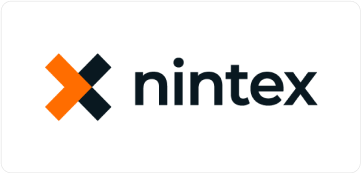
-
Process management:
With Nintex, users can document, map out, and manage organizational processes.
-
Robotic process automation:
We can automate repetitive and manual tasks to accelerate efficiency, which allows team members to focus on more complex tasks.
-
Process discovery:
Automating repetitive and manual tasks accelerates efficiency, allowing team members to focus on more complex tasks.
-
No-code development:
The visual workflow design allows users to build and map processing by dragging and dropping elements without manual coding.
-
Built-in connectors:
With Nintex’s built-in connectors and open AI, users can connect databases, internal or external systems, and other third-party applications.
-
Robust forms:
Users can build powerful digital forms for capturing or displaying data.
-
Mobile-friendly:
Nintex is a mobile-friendly platform that allows you to manage workflow from your smartphone.
-
Easy testing:
You can directly test workflows within the development platform before deployment.

"Nintex provides awesome features in all its products like Nintex Forms, Nintex Workflows, NWC and also Nintex App Studio.Best things we like -
1. Code Less - Drag and drop actions and controls to achieve desired effect. preview the changes immediately.
2. Ease of use - Terms and jargons are pretty easy to understand. Even elderly business clients can create and manage their forms and workflows with minimal support."
Chandan D.
Solutions Architect
-
Steep learning curve:
The learning curve is rather steep as it can take some time for users to get used to the platform.
-
Lack of documentation:
The platform offers limited user-friendly documentation, forcing users to find answers independently.
-
No in-built data storage:
Nintex cannot store data on its own. Users have to depend on SharePoint or other data storage solutions.
-
Updates can lead to disruptions:
The workflows can get disrupted during routine maintenance and updates.

"1. Any action that utilises a pause/wait (Pause until, pause, wait for check in etc) get stuck randomly. The work around provided by nintex does not help if expected to be executed very often.
2. The nintex support team do not do a due diligence of a raised ticket and provide random responses which are of no help whatsoever."
Pallavi D
Associate Manager
5. Microsoft PowerApps
Microsoft PowerApps offers a low-code, rapid development environment, allowing users to build and run complex applications and workflows without advanced coding skills. PowerApps enables users to create custom workflows according to their unique business requirements by integrating data platforms, services, and apps. Pro developers and citizen developers can use drag-and-drop elements, customizable templates, and AI features to quickly and easily applications.
PowerApps directly integrates with other Microsoft services, including Microsoft DataVerse, Microsoft 365, Dynamics 365, and SharePoint. Some of the Office 365 subscription plans also include this platform.
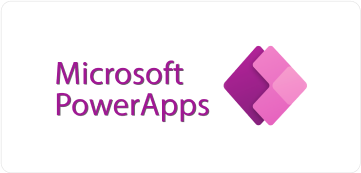
-
Workflow automation:
The platform allows users to automate workflows across websites, apps, and systems.
-
Power apps studio:
Suitable for beginners, the app designer is similar to Microsoft PowerPoint. Users can build apps on it just like they build presentations.
-
Copilot:
Microsoft's generative AI tool powers Power Apps. Users describe their desired app, and the AI automatically designs it.
-
App lifecycle management:
IT admins can manage complete end-to-end application lifecycles, including development, maintenance, and governance.
-
Low-code:
The platform offers a WYSIWYG editor with predefined templates and drag-and-drop features.
-
Data connectors:
The platform offers over 1000+ data connectors. Users can also build their own connectors.
-
Role-based security:
IT admins can control access to data, apps, and resources by establishing security roles for different team members.
-
Custom coding:
Users can extend the capabilities of their applications through custom coding.

“With a drag-and-drop interface, seamless data integration, and connections to other Microsoft tools, I can quickly develop powerful apps for my company.”
Vikram J
Sr. Data Analyst
-
Steep learning curve for business users:
Understanding the platform's advanced features can be difficult.
-
Not a standalone app development platform:
Since Power Apps closely integrates and works with the Microsoft Office suite, it cannot replace a dedicated app development solution.
-
Difficulty managing large volumes of data:
Power apps cannot handle large volumes of data efficiently, and users may experience some lag.
-
Slow data syncing:
Power Apps can be slow in picking up changes from the data sources and displaying them in workflows or apps.

“I think the most challenging aspect of Power Apps is also what makes it easy: the fact that it is part of a platform. Whatever you build will be tied to that platform, and you will have to pay for access to that platform.”
Timothy S
Information Success Coordinator

Experience the power of Kissflow firsthand
6. OutSystems
OutSystems is a low-code platform that allows users to design, code, and deploy high-performing applications. It provides access to visual development tools and AI-powered automation to build custom apps quickly with minimal to no coding. Giving IT admins control over the complete application lifecycle, OutSystems helps eliminate shadow IT through its scalable and secure application-building solutions.
Check out: Kissflow vs Outsystems: A Detailed Comparison
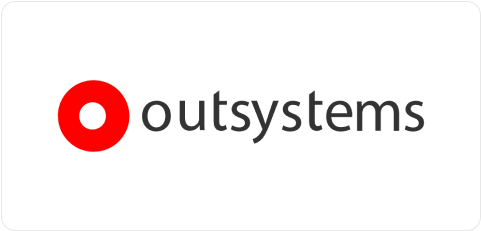
-
Workflow builder:
Transform complex business processes into high-performing, automated workflows.
-
Integration builder:
Integrate your custom apps with business-critical data stored in CRMs, ERPs, and other internal systems.
-
Custom user experiences:
Build custom end-user experience with UI patterns and responsive screen templates available for web and native mobile apps.
-
Visual development:
Create apps using fewer resources, drag-and-drop app builder, and numerous templates.
-
AI-powered:
AI powers the development platform and provides users with full-stack recommendations about UI and design.
-
Access control:
IT admins can set access control measures and grant permissions to selected users to access data and manage apps.
-
Real-time monitoring:
OutSystems has a real-time monitoring dashboard that allows users to monitor workflows and analyze application-level analytics.
-
App governance:
The platform minimizes shadow IT with its governed and collaborative approach.

“The development of business and customer-facing applications is fast and relatively simple with OutSystems. Prototyping is easy, and it takes a lot of standard development work out of a developer's hands.”
Ramon P
Enterprise User
-
Code overwriting issues:
When multiple developers work on the same feature, it can lead to overwriting problems.
-
No tools for testing:
No automated testing tools are available to test the apps before deployment.
-
Inability to handle complex applications:
The platform cannot efficiently run complex applications.
-
Not entirely no-code:
To make changes to widgets or UI templates, users need some knowledge of CSS and JavaScript.

“Lack of testing automation tools to perform regression tests is an issue. Feature branching is also not available.”
Raymond K
Information Systems Analyst

7. Glide
Glide helps users build powerful applications without coding or technical know-how. The platform’s strength lies in converting the logic of large databases into powerful applications. It integrates seamlessly with different data sources like Microsoft Excel, Google Spreadsheets, CSV files, Airtable, and more.
The platform offers a drag-and-drop feature to simplify app building and designing. With Glide, users can build workflows, applications, mobile stores, team directories, and more.

-
No-code:
Glide converts the logic of spreadsheets into applications. Users can link different spreadsheets, perform calculations, and look up data without any code.
-
Pre-built templates:
The platform has a library of over 400+ templates that users can easily customize according to their requirements.
-
Connected workflows:
With Glide, users can connect multiple workflow steps with conditional logic for powerful automation and customization.
-
Role-based access:
IT admins can assign users different roles based on their responsibilities in the team.
-
Cross-platform:
Glide builds apps that automatically adapt to different devices and change layouts.
-
Connect to other data sources:
The platform connects existing business data across different data sources, including spreadsheets and databases.
-
No-code workflows:
Users can build and manage complex workflows and integrate them seamlessly with other tools.
-
Scalability:
The platform offers easy scalability while maintaining the high responsiveness and performance that businesses need.

“It's convenient to develop and validate your ideas, especially if you love using Google Sheets.”
Ahmad Fadlan A
Product Manager
Computer Software
-
Limited documentation:
Glide does not have in-depth documentation for its advanced features.
-
Limited customization:
Users can only build apps by customizing the existing templates, and it's also impossible to add custom code to extend app capabilities.
-
Learning curve:
While Glide is completely no-code, it can still take some time for users to understand how the platform works.
-
Not great for enterprises:
Glide is a starter tool, and its main feature is turning spreadsheets into applications. It cannot build fully customized enterprise applications.

“I dislike that Glide is missing basic and simple features like push notifications and the ability to send pictures and voice messages through the chatrooms. Also, automated notifications aren't available.”
Brianna S

8. Quixy
Quixy is a no-code app builder that enables pro developers and business users to automate complex workflows and build custom applications for their unique needs. The platform offers a drag-and-drop interface and ready-to-use templates to streamline internal processes without any coding.

-
Ready-to-use templates:
Users can customize the templates available on the Quixy app store to quickly build apps.
-
Business rules engine:
You can establish multidimensional conditions for workflows, driving one or more automated actions.
-
Low-code workflow builder:
The easy-to-use visual interface allows users to build complex workflows with just a few clicks.
-
Form builder:
Over 40+ form fields are available, including e-signature and geolocation.
-
Seamless integration:
Quixy provides seamless integration to sync data across third-party applications through webhooks and out-of-the-box connectors.
-
Real-time insights:
Quixy allows users to access real-time insights and make data-driven decisions.
-
In-built simulator:
Users can test their apps before deployment across all possible use cases with the Quixy simulator.
-
Access control:
IT admins can control who can see and edit the information at different stages of the process workflow.

"The platform's user-guiding features are quite helpful for directing the individual when developing apps."
Hima Varsha C
PMO Analyst
-
Lack of coding customization:
Users cannot modify apps using custom code.
-
Difficult to navigate for beginners:
Setting up Quixy and understanding the platform can be a long process, especially for beginners.
-
Limited integration:
While integration is seamless on Quixy, limited integration options are available.
-
Missed notifications:
Some users have reported that they don’t always get real-time task notifications.

"It is helpful to have more features such as Gantt charts or similar alternatives that allow us to perform more internal research while observing the data."
Ramakrishna M
Software Engineer

9. Creatio
Creatio lets users create, optimize, and automate workflows. It mainly offers customer relationship management (CRM) features, allowing users to streamline customer journeys with minimal coding.
The platform can also effectively streamline and automate sales and marketing processes. Creatio offers drag-and-drop visual elements, a custom UI builder, pre-built templates, and integration capabilities.

-
No-code:
The platform makes building custom enterprise apps, workflows, and integrations easy without coding.
-
Workflow automation:
Users can optimize structured and unstructured processes through Cretio’s workflow automation features.
-
Ready-to-use templates:
Creatio offers templates for applications and connectors to accelerate no-code app development.
-
Custom UI design:
Users can design unique interfaces by leveraging a vast library of predefined widgets, views, and templates.
-
Advanced reporting:
Creatio offers built-in analytics, advanced reporting, and KPI monitoring tools for major CRM use cases.
-
Consolidated customer view:
Sales teams can get complete visibility into their external and internal customer data.
-
Streamline and automate sales processes:
The platform can streamline numerous sales processes, including lead management, sales forecasting, and performance management.
-
User-friendly interface:
Creatio is user-friendly, making it perfect for experienced developers and business users.

“Creatio has proven to be our partner by accommodating and customizing our sales process where needed.”
Nynke P
Small Business User
-
Few templates:
While Creatio offers some templates on its Marketplace, the selection is limited, and users may struggle to find what they are looking for.
-
Limited customization:
The platform does not provide complete customization for businesses to build their workflows from scratch.
-
Lack of debugging tools:
Creatio only offers some debugging tools with limited functionalities.
-
More suitable for sales and marketing teams:
Creatio majorly provides no-code solutions for sales, marketing, and service teams. It may not be the right platform for enterprises looking for an overarching no-code development solution for their departments.

"Need an understanding of HTML code to navigate their Marketing platform, which has been a problem for our small team. We actually ended up deciding not to use their marketing platform at all. It was not user friendly in the least and had too many workarounds to make it effective. It was a huge time waster for us."
Rebecca M
Business Development Assistant

10. AppSheet
AppSheet is a no-code app development platform that runs on Google Cloud and allows users to build apps for the web and mobile. Automating business processes and building actions/ triggers based on user intent is possible. Powered by AI and ML, the platform allows users to create apps by connecting various data sources, copying a template, or starting from scratch.
It offers a basic editor for building simple apps and an advanced editor for customizing apps.
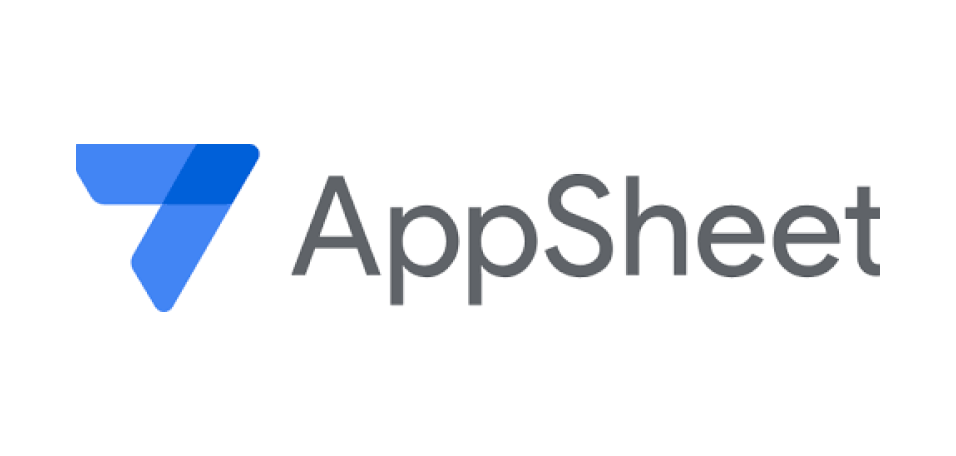
-
Workflow management:
Users can build bots to automate manual tasks so that the team members can focus on more complex tasks on their list.
-
Easy data capture:
The platform can easily capture data from forms, signatures, barcodes, locations, and photos.
-
No-code app development:
Users can build custom applications and workflows without coding.
-
App templates:
AppSheet has a library of templates based on everyday use cases. These templates can be directly copied and customized or used as inspiration for building custom apps.
-
Powered by AI:
AppSheet leverages AI to accelerate app development. Its app editor can also provide suggestions for easily customizing apps.
-
Multi-platform deployment:
You can directly deploy apps built on AppSheet on the web, iOS, or Android.
-
Connects with various data sources:
AppSheet connects with several database sources, including Google Spreadsheets, SQL databases, Excel, and other cloud services.
-
Easy to use:
The platform's simplicity makes it easy for citizen developers to use:

“It's easy to use, offers quick deployment, and has a user-friendly interface.”
Luis Antonio E
-
Limited analytics:
The analytics features of the platform aren't yet comparable to those of its competitors.
-
Update delays:
When an app is updated or modified through AppSheet, the changes can take some time to appear live.
-
Occasional crashes:
Some users have reported AppSheet crashing from time to time.
-
Support isn’t proactive enough:
While the support team is usually helpful, it can take some time for them to respond.

“Customization of the interface is basic. Fonts and colors are difficult to change if even possible.”
Jean-Luc G

Finding the best no-code app builder
Creating an app without coding allows enterprises to include business users in the app development and deploy applications in weeks instead of months. From intuitive drag-and-drop builders to great custom UI and seamless integrations, no-code app builders offer some great possibilities for domain experts to build their apps without needing help from IT.
Kissflow is the only enterprise no-code development platform built for multiple use cases and personas. With Kissflow, you can manage your HR functions, handle support tickets, streamline procurement management, and more. Powered by collaborative development, Kissflow allows domain experts in your organization to build apps their way while still giving IT admins complete control over app development.
Book a Demo with Kissflow today to improve efficiency across the different departments in your organization.
Choose the best low-code platform for your enterprise

Power Apps Vs Mendix Vs Kissflow
Compare Kissflow with Power Apps and Mendix to find the best low-code solution for your needs.
Learn More
Mendix Vs OutSystems Vs Kissflow
Discover how Kissflow stacks up against Mendix and OutSystems for seamless low-code app development.
Learn More
Power Apps Vs ServiceNow Vs Kissflow
Evaluate Kissflow vs. Power Apps and ServiceNow to choose the right low-code platform.
Learn MoreRelated Articles















